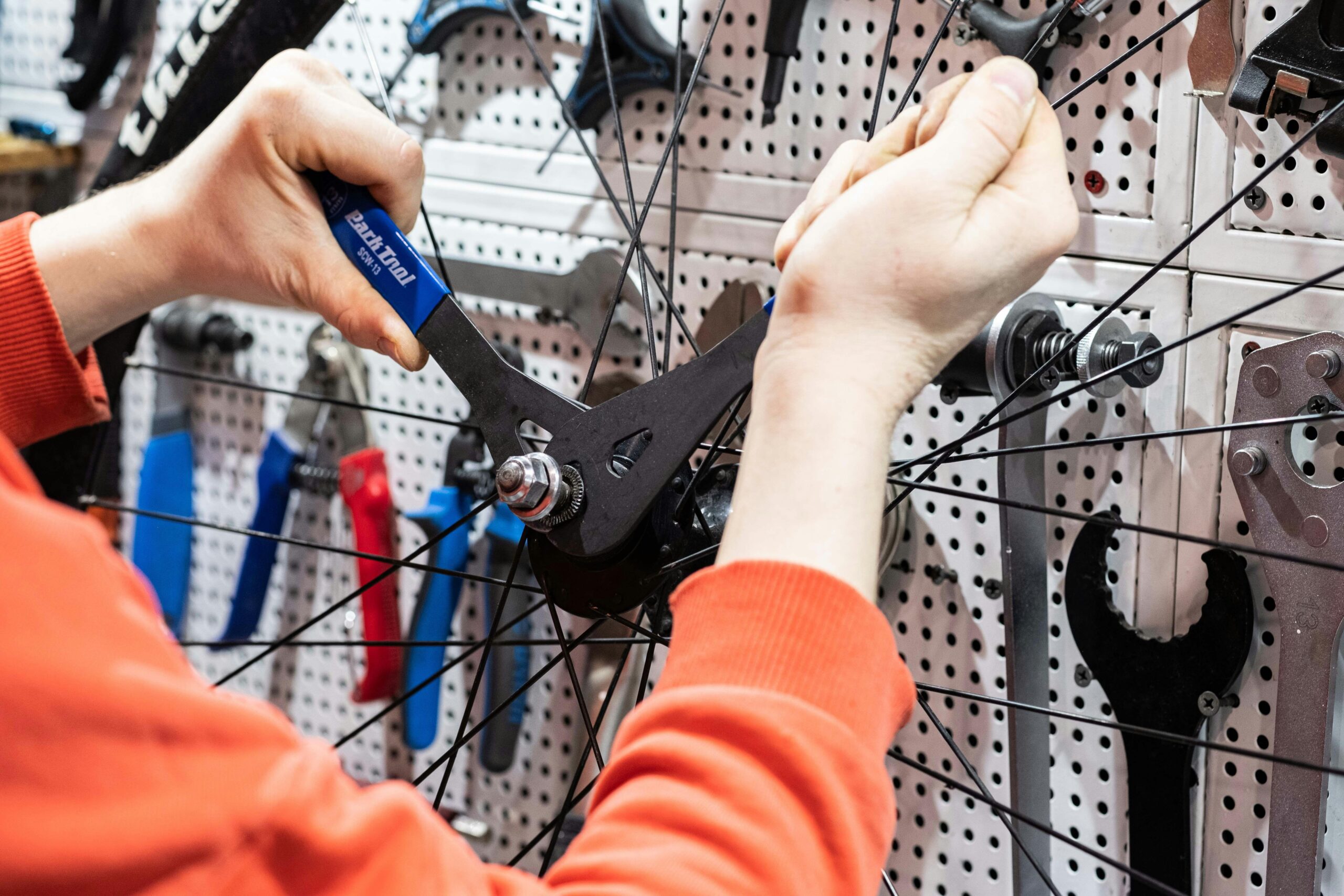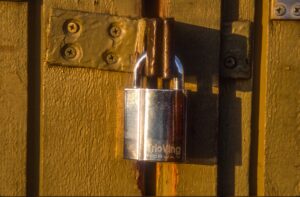Security isn’t just about locks and keys — it’s about reliability, continuity, and trust. For businesses, every minute of downtime caused by a broken lock, lost key, or security failure translates directly to financial and operational risk. That’s why having a commercial locksmith on call isn’t a luxury — it’s a strategic necessity.
Whether you manage a single storefront or oversee multiple offices, a professional locksmith ensures that your business stays protected, accessible, and compliant 24 hours a day.
Understanding What a Commercial Locksmith Does
A commercial locksmith specializes in securing business premises. Unlike residential locksmiths who focus on individual doors and homes, commercial professionals work with advanced systems designed for higher traffic, stricter access control, and layered security.
Their services include lock installation and repair, master key systems, electronic access control, safe and vault maintenance, door hardware adjustments, and emergency lockouts. But their real value lies in ongoing protection — regular maintenance, upgrades, and fast response when issues arise.
In today’s fast-moving environment, where physical and digital security overlap, the commercial locksmith has become a vital partner in every organization’s operational safety plan.
The Cost of Not Having One
Many business owners wait until something goes wrong before searching for help. Unfortunately, reactive decisions in security often cost more than proactive planning.
Consider the risks:
-
A lost key that prevents access to critical areas.
-
A malfunctioning lock that delays opening hours or payroll access.
-
A security breach caused by outdated hardware.
In each scenario, the absence of a reliable locksmith can lead to lost revenue, exposure to liability, and reputational damage. Keeping a professional on call minimizes these risks through predictable response times and preventive service.
Key Services a Commercial Locksmith Provides
1. Lock Installation and Upgrades
From standard commercial-grade deadbolts to electronic and biometric systems, locksmiths assess the right level of protection for each entry point. Upgrading old locks doesn’t just prevent intrusions — it can also reduce insurance premiums by improving compliance with safety regulations.
2. Master Key Systems
For companies with multiple departments or properties, master key systems streamline access. They allow managers to open all doors with one key while restricting entry for staff as needed. It’s an elegant balance between convenience and control.
3. Access Control Integration
Modern locksmiths now integrate physical locks with digital control panels, keycards, or smart credentials. Businesses gain better monitoring and the ability to deactivate lost credentials instantly — a huge step forward from traditional key duplication.
4. Emergency and After-Hours Response
Emergencies rarely happen during office hours. Having a locksmith on call means no waiting overnight or leaving your building unsecured. Most commercial professionals offer 24/7 service, with average response times between 20 and 40 minutes.
5. Rekeying and Lock Maintenance
When an employee leaves or keys are misplaced, rekeying is a quick and cost-effective solution. It invalidates old keys without changing the entire lock hardware. Regular maintenance also prevents internal wear that could cause costly failures later.
The Business Case for a Standing Locksmith Relationship
Treating a locksmith as a vendor you only contact in emergencies is short-sighted. Long-term relationships create efficiency and trust. A locksmith who understands your property layout, access hierarchy, and compliance requirements can act faster and more accurately when problems occur.
Ongoing service agreements typically include scheduled inspections, priority dispatch, and even annual system audits. This relationship ensures that small issues — worn cylinders, sticky locks, outdated codes — never evolve into operational breakdowns.
In essence, your locksmith becomes part of your extended security team.
How a Commercial Locksmith Strengthens Office Security
Physical security is often the first line of defense against both external and internal threats.
A qualified locksmith helps businesses strengthen this foundation by:
-
Assessing vulnerabilities: Identifying weak access points or obsolete locks.
-
Balancing convenience and protection: Designing systems that allow smooth employee movement without compromising safety.
-
Supporting compliance: Ensuring hardware meets local fire and building codes.
-
Integrating technology: Merging traditional locks with digital access control and alarm systems.
This proactive approach doesn’t just protect doors — it protects productivity.
Industries That Benefit Most
Every business benefits from a commercial locksmith, but certain industries rely on them daily:
-
Retail stores that manage high customer traffic and cash flow.
-
Offices and corporate spaces with layered access levels.
-
Healthcare facilities that require strict control over medications and patient files.
-
Educational institutions managing classrooms, labs, and faculty areas.
-
Warehouses and logistics centers safeguarding valuable inventory.
Each environment presents unique challenges, and an experienced locksmith tailors solutions to fit those needs.
Realistic Response and Service Times
Time is money in business, and professional locksmiths understand this better than anyone. Most can respond to emergency lockouts within 30 minutes and resolve the issue in another 15–30 minutes. Non-urgent work such as rekeying or installation is often scheduled at your convenience to avoid disrupting daily operations.
Establishing a service agreement ensures priority handling, meaning your business moves to the top of the queue when emergencies arise.
Table: Comparing Reactive vs. Proactive Locksmith Strategies
| Approach | When You Call | Typical Outcome | Cost Impact | Business Risk |
|---|---|---|---|---|
| Reactive (no locksmith on call) | After an emergency occurs | Delayed access, possible downtime | High (emergency rates) | Significant — lost revenue, security gaps |
| Proactive (locksmith on call) | Before problems happen | Immediate response, planned maintenance | Predictable and lower over time | Minimal — consistent protection and control |
Why Ongoing Service Matters
Locks, like any mechanical system, degrade over time. Springs weaken, keys wear down, and misalignment causes sticking or jamming. Routine inspection prevents these small issues from turning into major disruptions.
Moreover, businesses evolve. Staff turnover, office expansions, and technology upgrades all change access needs. An ongoing relationship with a locksmith ensures your security plan evolves with you — not behind you.
Choosing the Right Commercial Locksmith
Not all locksmiths are created equal. When evaluating options, look for:
-
Verified licensing and insurance.
-
Experience with commercial-grade and electronic systems.
-
References from other businesses in your sector.
-
Clear service agreements with 24/7 availability.
-
Transparent pricing and written estimates.
Selecting a locksmith with proven commercial expertise ensures long-term reliability and compliance with safety standards.
The Bigger Picture: Security as an Investment
Every business decision carries a cost, but some costs are actually investments in continuity. Having a trusted locksmith on call is one of them. It prevents interruptions, strengthens employee safety, and reinforces customer confidence.
Security failures often make headlines; quiet reliability does not. But it’s that reliability — consistent access, maintained systems, and rapid response — that defines professional excellence in modern business operations.
Frequently Asked Questions
1. What’s the difference between a commercial and residential locksmith?
A commercial locksmith specializes in higher-security systems designed for offices, warehouses, and retail environments. They handle access control, master key setups, and compliance with building codes, while residential locksmiths focus on home locks and doors.
2. How often should a business rekey or inspect its locks?
Most experts recommend rekeying after staff turnover, lost keys, or every two to three years as a preventive measure. Annual inspections help detect wear before it becomes a failure.
3. Are 24-hour locksmith services worth the cost for businesses?
Yes. Even a short lockout can halt operations, delay deliveries, or violate security protocols. Having 24-hour coverage ensures immediate help at any hour, reducing downtime.
4. Can a locksmith integrate physical locks with digital security systems?
Absolutely. Many modern locksmiths are trained in access control technology, enabling integration with keycard systems, biometric readers, or remote monitoring software.
5. What industries rely most on commercial locksmiths?
Retail, healthcare, education, manufacturing, and corporate offices rely heavily on locksmith services for restricted access, employee safety, and compliance with insurance and safety regulations.
6. Does hiring a locksmith regularly save money in the long run?
Yes. Preventive maintenance and periodic rekeying reduce the need for costly emergency interventions, protect assets, and extend the life of your locking systems.
7. Can one locksmith manage multiple business locations?
Yes. Many locksmith companies offer multi-site service agreements, allowing a single point of contact for all your facilities. This ensures consistent security standards and simplified billing.
8. What’s included in a commercial locksmith maintenance plan?
Typical plans cover regular inspections, lubrication, rekeying as needed, adjustment of door closers, and priority emergency response — all designed to maintain seamless security.
9. How long does it take for a commercial locksmith to respond in emergencies?
Average response times range between 20 and 40 minutes, depending on distance and traffic. Businesses with service contracts often receive priority assistance.
10. What’s the most important reason to have a locksmith on call?
Consistency. Emergencies are unpredictable, but knowing you have a trusted professional ready to respond ensures uninterrupted operations and continuous peace of mind.





